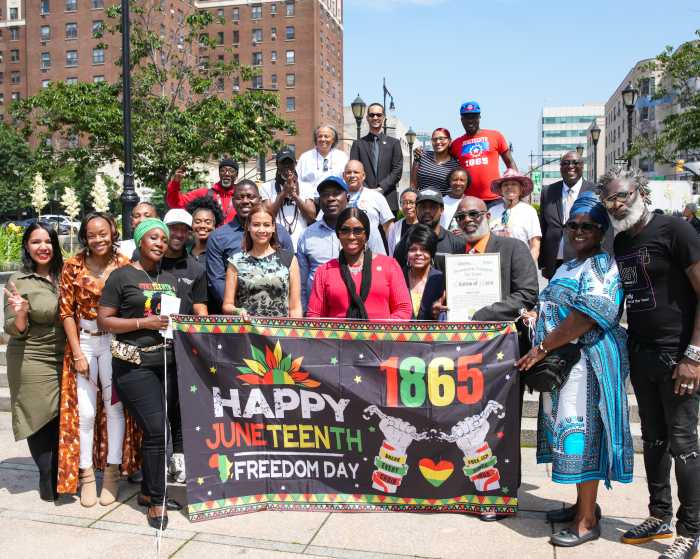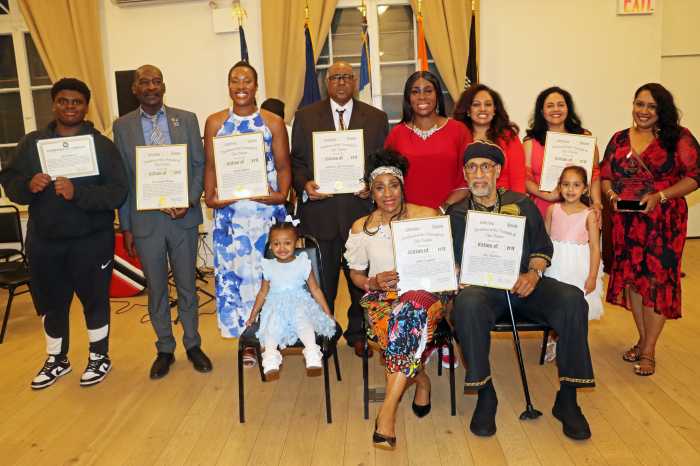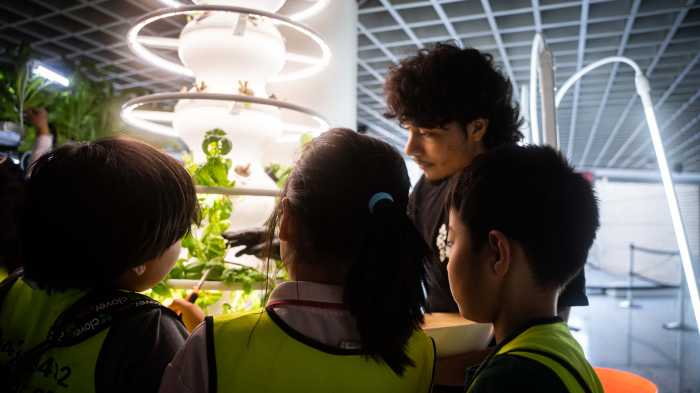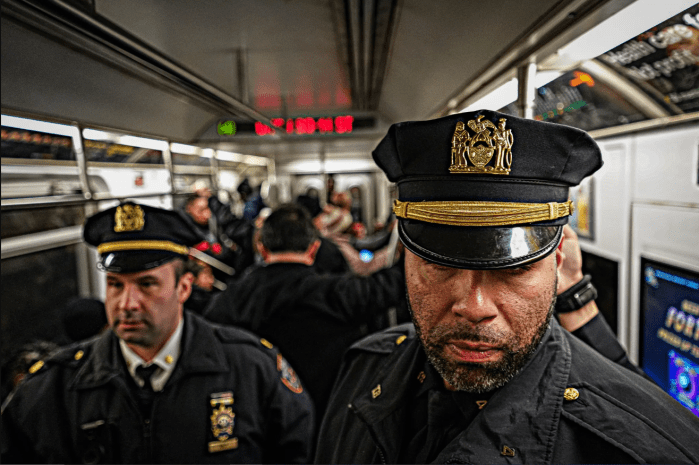It is said of Black communities – by thinkers from these same communities – that we suffer from a phenomenon they aptly characterized as a paralysis of analysis. Of course, Dr. Amos Wilson and Dr. Cornell West and the others who have echoed this sentiment did not refrain from offering a contextualized rendition of what it is they attributed to our obvious lacking in the science and art of organizing, as in creating institutions that would reflect a fighting spirit to not simply reverse what was done to us collectively vis-à-vis laws, but proactively chart a course for the preservation of the best values and practices tested and seen to be ideal for the upliftment and betterment of a people maimed by white hegemonic rule in all spheres of the society.
Whether we are cognizant of this fact or not: we are participants in the creation and spread of values. And, that act of participation by its very nature compels us to be agents of those values we perpetuate, which, in turn, structure the realities that hold dominance over our lives. As the aforementioned doctors (non-medical) incessantly sought to contextualize this too-often- mistaken disease for mere symptom, I am impelled to take to task the duty to offer an analysis of my working environment, but more so to do with the objective reality of one general room within the crowning institution for higher learning of the heights formally known as Crown Heights in the borough of Kings: The Learning Center or the Academic Support Center at Medgar Evers College; named in honor of the civil and humanitarian rights leader whose name it bears on its façade.
I have been a student of the college, as well as two other colleges within the CUNY university system, and currently work in the capacity of a writing tutor primarily for the subjects of English and Political Science, of which I take great pride in doing, though not without frustration. The latter condition is very much a constant in this setting, as it is in the general community for both workers and students alike. The center’s primary mission, as is hinted in its title, is to spur learning, with the focus placed on the less advantaged amidst that learning population, as they are readily positioned to need this assistance due to their more obvious shortcomings, in the community of learners. Quite frankly, I am not privy to quote statements from authorities as to say there is a blatant intent to create obstacles that will nullify the intended promise, to encourage rigorous learning and independent-mindedness amongst participants (both tutors and tutees). For the most part, everything by way of policy seems to be cloaked in the timeless lack of resources – this much I could confirm.
It baffles and upsets me to witness the mass internalization of this culture of poverty, even as workers and students’ plight is to rid themselves of the trappings of such malady, which by the way isn’t natural an occurrence as many would like us to believe, in a sea of wealth (in this country). For the considerable time that I have rendered my service as a tutor with the center, I have come away with the understanding that the funds used to pay tutors are grant-based (with contributions from Research Foundation/CUNY and the college student government, etc.) and more predominantly now, due to a gross reduction of the former, from the slightly different tax-levy funds from the state and federal governments to cover certain specific areas; as opposed to the college itself budget. The consequential reality of this is that funds are not allocated adequately and/ or not allocated in a timely manner (in the limited sums), resulting in shorter and shorter periods of tutoring for the students and not enough tutors available. In effect, tutoring for both fall and spring semester (regular semesters) starts from two weeks to almost a month officially after the start of those semesters, as tutors are phased in in accordance with budgetary constraints. Obviously, it is even a greater challenge for students if they have to wait weeks after the start of classes for tutorial service; it could only compound the situation: never mind enrollment has been soaring in recent years, adding greater demand for the vital service, where an open-door admission policy still tolls for the multitude.
Moreover, in regards to the physical space, with the general hall setting which isn’t conducive in the least for the individualized attention ideal for tutoring, when basically several conversations or teaching sessions of various disciplines and topics are competing with each other, one would think better housing for the center would be provided at this stage: not next week, or the next school year, given the fact that the college has undergone a physical expansion of its campus. For more than fourteen years (as I can recall) students have been crowding together in a general room (for the most part) to receive tutoring. Sometimes it’s bearable when the room isn’t filled to capacity, but in many instances, just the same, the conditions with the sound and physical space issue can be such where it’s a challenge to even hear one’s thought or stay with a train of thought, with the frequent disruptions, passing for normalcy. Those conditions deprive students of a sense of entitlement; it’s daunting to think (plus the reactions from students denote it) that as much as they are not comfortable with the cramped space and its derivatives that they have the where it all to make demands more than they can in regards to the NYPD’s policy/practice of stop and frisk. The powerlessness is quite alarming in both instances.
They, the students, and tutors are robbed quite simply of what their white counterparts could take as standard infrastructure. To illustrate this further, the college only recently, as within the last four or five years, provided common furnishings, separate from those in the classrooms and offices. As an alumnus and current worker with the center, I raise these concerns in an attempt to appeal to the leadership within the institution to halt the deprivation and perpetuation of a psychology that has been the legacy of being “minority.”
Such treatments and conditions only seek to hinder the mission, but they are not the pernicious effects that are the result when the least fortunate among the less fortunate is obviously taken for granted, given that these conditions only linger and fester, to bring about the very qualities the center and institution are supposedly seeking to eradicate: poverty and hopelessness in these communities. This, no doubt affects the livelihood of those who serve as tutors, for they are dependent on the facility to provide them with financial resource, surprisingly less in a supplemental manner as it is quite central, as needed to provide basic support, especially in the current times; most certainly, if tutors should wait roughly one and a half month to receive a paycheck for the first two weeks of work, regardless of how long one has been serving as a tutor: according to payroll’s standard practice which won’t afford tutors the same efficiency it does to workers on the college’s budget, and most likely it can’t due to the very fact that the funds being collected pose this difficulty in the first place in the manner they trickle in. The other act was the cut in the working hours for tutors, from the once 18 to 20 hours per week, to now 15 hours for the same period; at rates that have not moved, $10.00 to $13.00 (thereabout).
In spite of it all, the benefit the college receives is that most of its tutors have commanded more than A’s and B’s in the courses that they tutor; many (over 75%) have their bachelor’s degrees; still in that group, there are those who either already possess advance degrees or currently pursuing such; there are even ones doing their PhDs while tutoring. It’s a case of love for sharing and desperation rapped into one, not comfortability. In fact, tutors have continuously contended with job-insecurity as seasonal/contractual workers; contracts generally conclude in the spring semester.
Evidently, the dependency syndrome experienced by our communities to the hegemonic, oligarchic structure, which currently has been intensified vis-à-vis the disparity between the haves and the have-nots, is becoming a bigger sore on a diabetic body politic yet to show real seriousness, and it would be hopeless to think it can, toward the so-called “people”; in this case, the black and brown peoples of central Brooklyn; and at Medgar Evers College the effects are ever so present, and it is very much a direct result of the inactions of our leadership as it is a paralysis of analysis on their part. Thus, anything but critical thinking is taking root in the minds of those who need it most: the “same ol’ same ol’” has continued, even in the halls of higher learning under the watch of stewards who espouse a philosophy of enlightenment and prosperity: “creating success one student at a time.”
Most dominant is the attitude of students concerning themselves with just passing exams, a national issue one must contend, without much care to absorb the material, or better yet acquire the intangibles as to how one goes about critical thinking. I am inclined to believe that not much is being done to date in the classroom to teach critical thinking in a direct way with such intent, particularly in the English courses. But I could be prejudiced by my exposure to students and faculty almost exclusively from this department and have been privy to its curriculum approach, and tirelessly pleaded with faculty for a revamping of their approach, to be more forthright in its instruction in how students should approach critical thinking. The current approach seems to assume that “students could think”, that their major problem is “organizing their thoughts” (writing). However, this assumption has not redeemed/ elevated anyone in his/her ability to think analytically, and I cannot see how it could, unless haphazardly. Students who somehow are more mature in mind and see value in questioning may find some comfort in these courses, unlike the many that have such challenge.
Therefore, in spite of the denunciation of professors from this discipline regarding the retelling of situations and stories as opposed to analyzing the context the literature is offering in representing aspects of reality, even with the utilization of fiction, they simply are not equipping these students with the proper tools to do so, in an atmosphere that is any less frustrating than their lives outside the institution, which has already relegated them to being “minorities” and worse yet objects. Hence, there is the continuation of not owning the experience, whether it is in the literary form or otherwise, because many are not taught the value in formulating questions, basically questioning reality with the intention to optimize resourcefulness. Paramount is the human resource, and that has to be stressed every step of the way.
But how tutors ought to adequately help reverse this disease of not knowing how to intelligently analyze reality, the same reality which we are captive of for the most part, when workers are treated in a manner that does not show any significant degree of value in what they are doing for the college community and the wider community serving as tutors, if the frustrations they encounter aren’t mitigated? I cannot speak for the professors, for I cannot pretend to know their particular grievances with the institution and CUNY (notwithstanding recent developments), nor could I speak for the administrators. Their job, in my humble view, is to radicalize the young minds that come before them, as it is the tutor’s task to aid in that process, armed with methodologies that resonate with a penchant for formulating more and more refined questions to ask oneself and of others in the quest to know for certain the purpose of our lives, no matter the particular form it may give shape to, in the universality of all healthy cultures: to survive and strive as a sovereign spec in the cosmos of humanity and that of the natural order.
If we should thrive, it is because we cure ourselves from the disease that saddles our communities to languish in reactionary modes of behavior, the incapacitation for pragmatic thinking amongst our people, particularly as it applies to leadership. It is a travesty to encounter negligence as it relates to addressing this disease, of all places a college founded by community activists, or any college for that matter that should be empowering and mobilizing these communities. There is no other way to state it: this is a marginalized people’s only hope in this environment, reversing this disease; not marginalizing those in our care. That is anything but revolutionary. Only a revolution could free us from the status quo – a revolution of minds is certainly a precursor to the action of the individual and group that would transform this reality.
The author is a tutor at Medgar Evers College, CUNY..
























